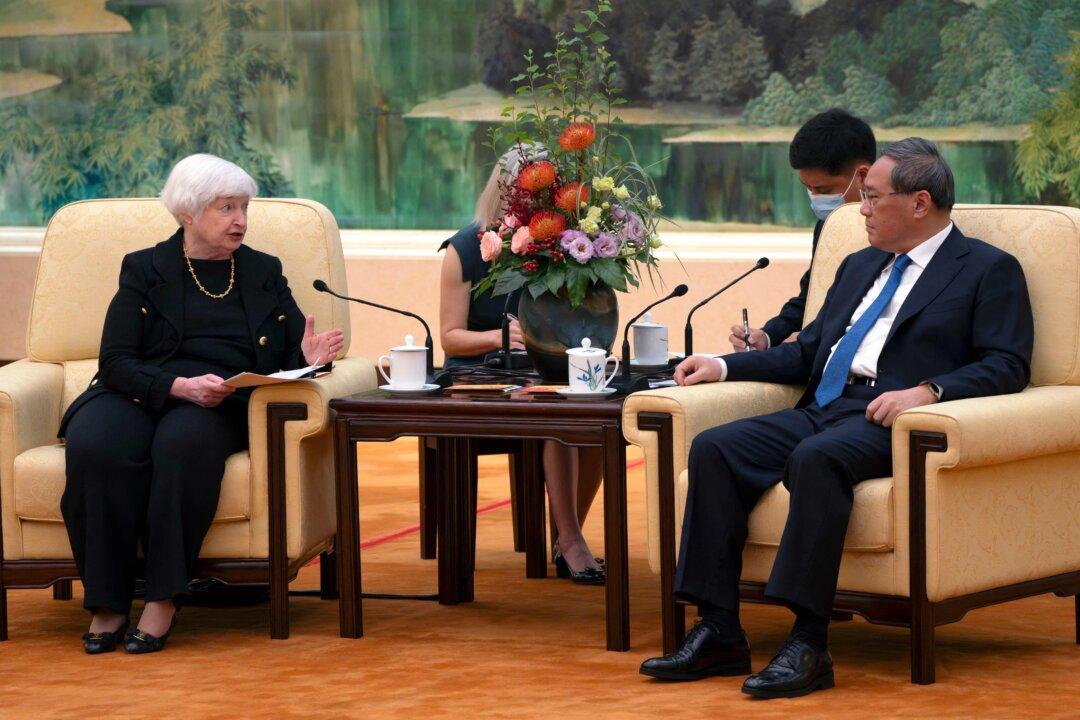U.S. Treasury Secretary Janet Yellen said China and the United States should compete based on a “fair set of rules,” defending Washington’s policies against the communist regime’s continued unfair trade practices on the second day of her diplomatic trip to Beijing.
Ms. Yellen made the comment during her first face-to-face meeting with China’s new Premier Li Qiang on Friday.





